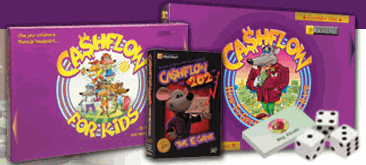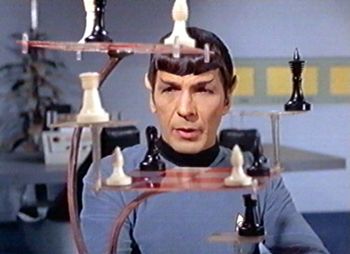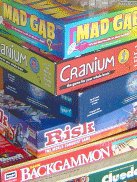Decision Making Process Games
Why play games?
When it comes to the decision making process games are an obvious way to practice your skills in a safe environment. It is possible to develop a wide range of experience by using simulated scenarios so that when you come to do the real thing you hit the ground running, so to speak.
There are some major organizations that appreciate the fact that to teach the decision-making process games are very effective. The military and the fire service are two such groups. Of interest here is that these groups are moving away from rational models. Much more emphasis is being placed on intuitive and recognition primed decision models.
Decision making process games
It's obvious that any game involves choice points and making decisions. Rather than choosing a game to practice making decisions, it's much more useful to have a more focused intention in mind.
In what area do you want to practice making decisions? Financial decision making, relationships, career, life decisions, forward planning? Once you know what area, the next step is to find a game that will give you the opportunity to practice.
Financial decision making
For example, in terms of financial decision making, Robert Kiyosaki's Cashflow game teaches people to manage their finances. This game has specifically been designed as a decision making process game.

He initially explains what he means by assets and liabilities. And the game is set up so that each person has income and outgoings. The aim is to develop passive income that exceeds your outgoings. Along the way there are many choices that you get to make. And all the time you're building financial awareness and experiences for yourself.
Having played the game (frequently!) I think this is an excellent tool that provides a financial education that is not provided in the educational system. There is an advanced version and even a child's version of these decision making process games.
Forward planning
Chess masters and grandmasters make their moves based on what they think will happen over the next 10, 15 or even 20 moves. That's right, they run scenarios in their heads that predict what may happen over the next 20 or so moves. As far as decision making process games go for forward planning, this is a good one!

Of interest here is that the areas of the brain responsible for forward planning, the pre-frontal lobes, do not develop fully until the ages of 16 to 20. This goes a long way to explain why teens take risks and do things without seeming to consider the consequences. They simply don't have the brain capacity to do the forward planning yet.
And, of course, there are lots of young children who play chess. Some research has shown that if these children are using parts of the brain before they are ready, then they are not stimulating other parts. So the normal sequence of events in terms of brain development is altered. This seems to have a variety of consequences later in life.
Other ideas

When people play games, their intention is usually to play the games. If you want to make them decision making process games, then change your intention. Decide ahead of time that you want to put your attention on the decision making aspect. This will allow you to learn different things even while playing the same game.
You may decide that you want to create different scenarios within the game so that you or your children can have different experiences and practice the decision making process.
Games can take on a whole new meaning when you approach them in this way. Games are, after all, how children (and even adults!) learn most of what they know about living in the world!
Like this page?
Mind Control
You have probably noticed that I am moving the whole Mind Control section to a new site. Please excuse any inconvenience.
This is the new site www.pschobegone.com. Feel free to come and visit. Any suggestions will be gratefully received!